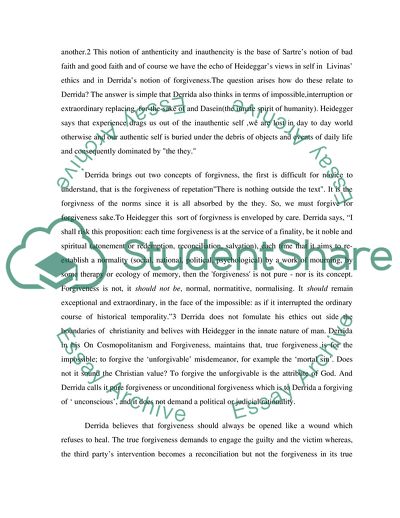Analysis of the Concept of Forgiveness Essay Example | Topics and Well Written Essays - 1500 words - 1. https://studentshare.org/philosophy/1717641-mordern-philosophys-paper
Analysis of the Concept of Forgiveness Essay Example | Topics and Well Written Essays - 1500 Words - 1. https://studentshare.org/philosophy/1717641-mordern-philosophys-paper.


